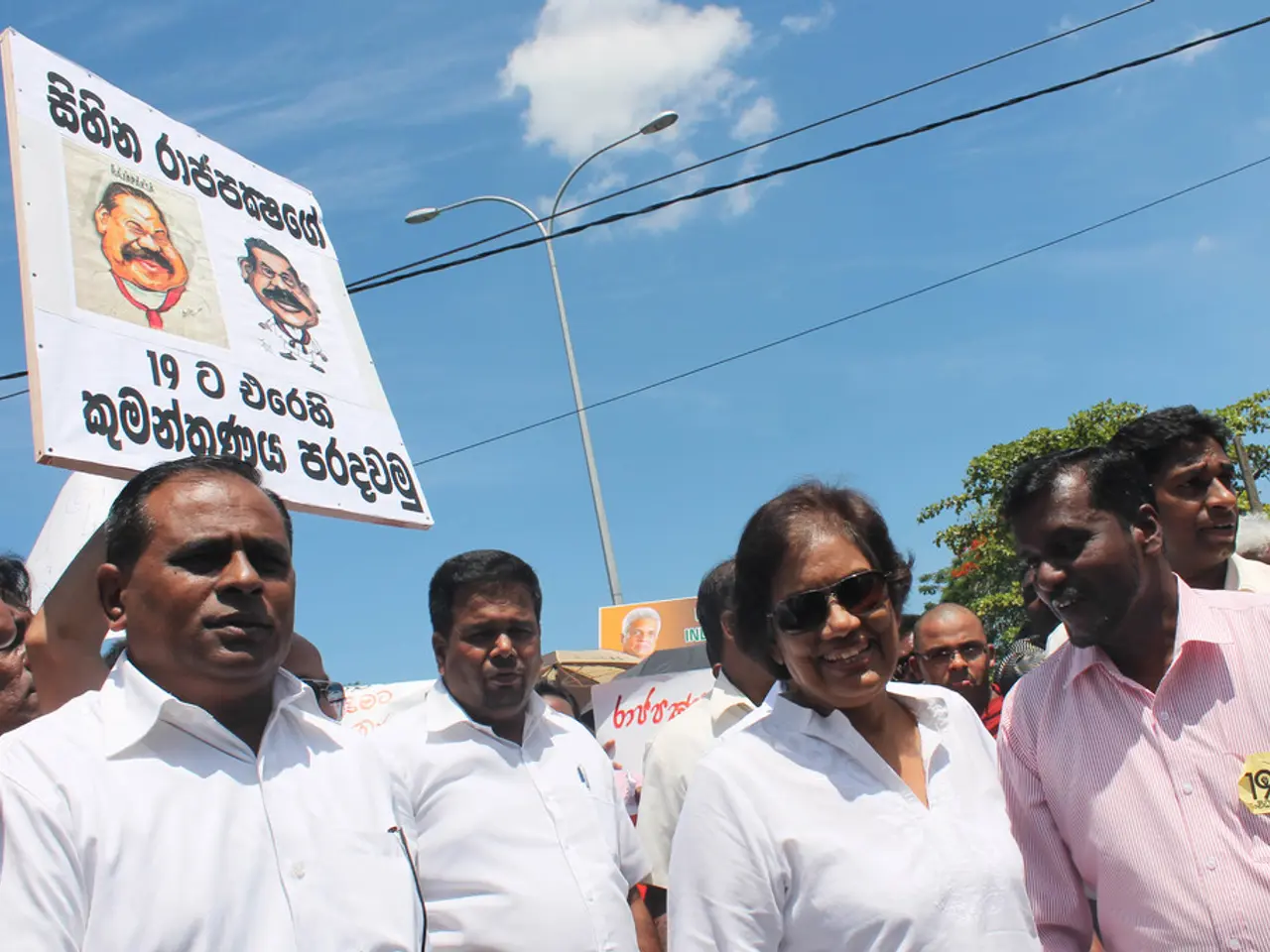Unveiling Further Layers: Potential For More Unseen Aspects Revealed
In a developing political saga, Thai lawmakers and cabinet ministers are facing potential legal and political repercussions following the reallocation of budget funds in the 2025 fiscal year.
The case centres around the Thai cabinet, under Prime Minister Srettha Thavisin's administration, reallocating 35 billion baht from a debt payment fund for state-run banks to a cash handout scheme. This move, according to many legal experts, is unconstitutional.
The House budget committee endorsed these reallocations, but the National Anti-Corruption Commission (NACC) has been petitioned to investigate potential violations of Section 144, which prohibits such budget diversions. If the NACC finds enough grounds and the Constitutional Court applies the same criteria, the 309 MPs, 175 senators, and 72 budget committee members could face similar political and legal consequences.
These consequences could range from political backlash and diminished trust to formal legal sanctions, including removal from office or disqualification from future political roles. The potential political consequences for those involved include penalties for violating constitutional provisions, loss of political standing, and possibly more severe repercussions if the case is escalated to the Constitutional Court.
This situation sets a precedent, indicating that those who divert or reallocate budget funds improperly, in violation of Section 144 of the constitution, could face sanctions similar to those imposed on former politician Pichet, who was punished for abusing his authority in budget allocation.
The Bhumjaithai Party has already taken action against three of its MPs - Chookan Kunwongsa, Prapha Hengphaiboon, and Orauma Boonsiri - following their vote against the party's stance on a draft bill on entertainment complexes. The party has barred them from party activities, and if there's clear evidence, they will be expelled, and legal proceedings will follow.
The NACC's preliminary investigation into the Section 144 case is expected to conclude today. On financial inducements, Bhumjaithai Party secretary-general Mr Chaichanok revealed preliminary conversations with one of the three MPs, but the internal investigative committee will handle the matter discreetly to avoid leaks.
Political experts warn that this could lead to increased political instability, especially in fragile coalition governments, with heightened caution among MPs regarding budget matters and the possibility of "cobra" incidents—situations where political loyalty is challenged—becoming more frequent.
Mr Chaichanok admitted that "there's no way to fully prevent cobras", because the ultimate decision lies with individual MPs. However, he urged MPs to think carefully about whether their choices serve the public interest or self-interest, and warned that accepting money would contradict that public mandate.
The BJT's internal investigation is expected to expose a plot by any party wanting to lure away the three MPs, if solid evidence of such a scheme is obtained. The budget bill for the current fiscal year was accepted by the House for deliberation in its first reading in June 2021.
In a related development, the Constitutional Court disqualified Pheu Thai MP Pichet Chuamuangphan for violating Section 144 of the constitution. Mr Pichet was found to have diverted state budget allocations for use in his own constituency, effectively banning him from running for office for 10 years.
This case serves as a reminder of the importance of adhering to constitutional budgetary rules and the potential consequences for those who fail to do so. As the investigation continues, the Thai political landscape remains poised for significant change.
- The political landscape in Thailand is currently faced with potential legal and political repercussions, as the reallocation of budget funds in the 2025 fiscal year by the Thai cabinet is being investigated by the National Anti-Corruption Commission (NACC) for potential violations of Section 144.
- Political experts suggest that the increasing incidents of budget matters being questioned for violating Section 144 could potentially lead to heightened political instability, particularly in fragile coalition governments, and increased caution among MPs regarding budget issues.







